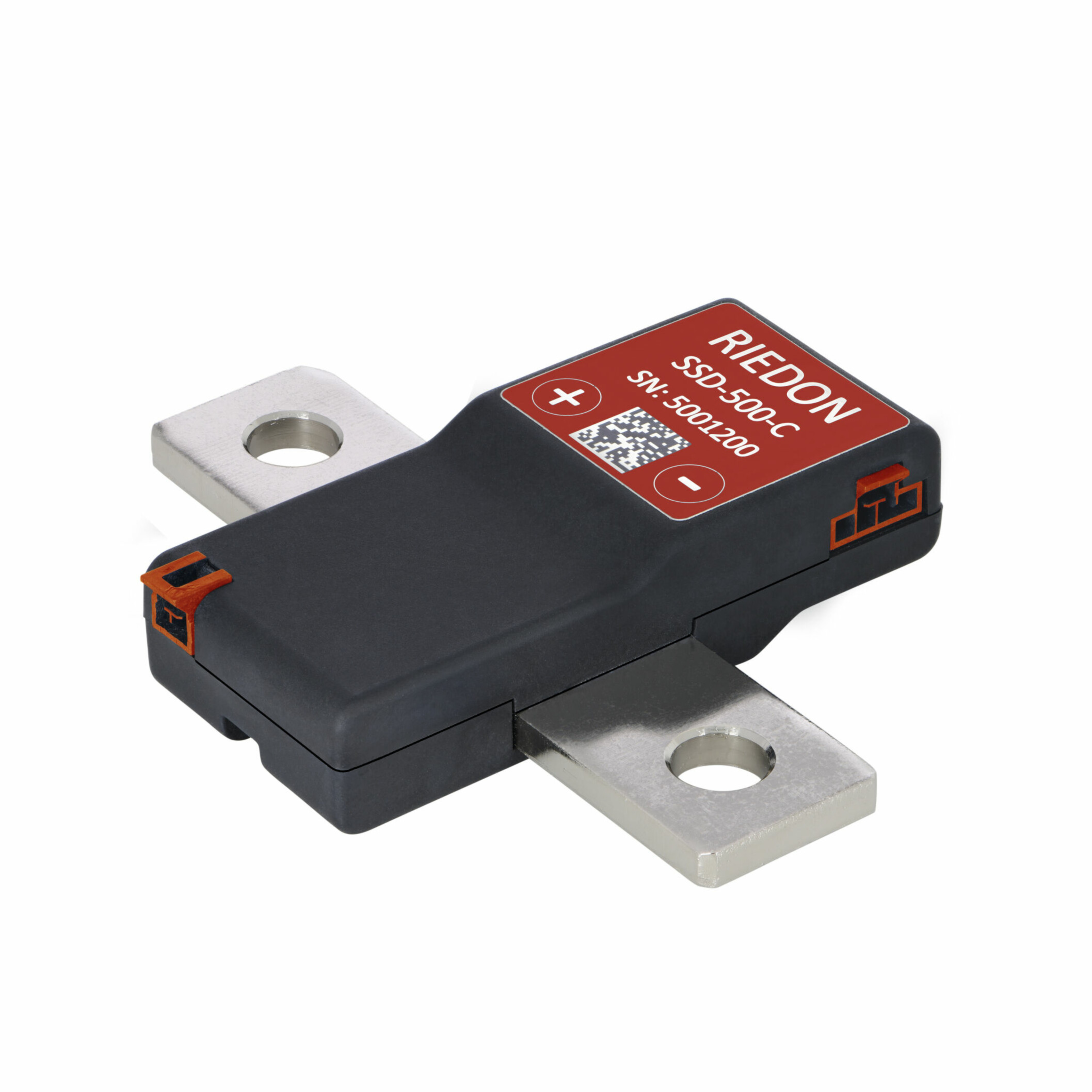Here is a quick summary of their article:
Riedon Inc., a specialist in power and precision resistors, has introduced its new SSD Smart Shunt series of digital DC current sensors. These sensors offer high accuracy, energy efficiency, and rugged design, making them suitable for a wide range of battery-related current-sensing applications, including large-scale energy-storage banks, renewable-energy generation infrastructure, industrial motor drives, building automation systems, and EV charging stations.
Similar to Riedon’s original Smart Shunt devices launched in mid-2020, the new SSD series combines the capabilities of conventional passive shunt resistors and closed-loop Hall-effect current sensors. The family integrates a 16-bit automotive-grade microcontroller, a 24-bit ADC with buffered analog inputs, flash memory storage, and a communications interface (RS-485/Modbus RTU or customizable CAN bus) into the sensing circuitry within a digital system-in-package (SiP). This integration enables plug-and-play simplicity for current measurements, battery voltage monitoring, and coulomb counting while eliminating the need for periodic calibration.
The SSD Digital Smart Shunt devices have current-sensing capabilities rated from 100A (2kA peak) to 1kA (20kA peak) with better than ±0.1% full-scale accuracy and full-scale linearity within a ±0.1% margin. These sensors exhibit excellent long-term stability, with less than ±0.1% deviation during 1,000 hours of operation at 60°C terminal temperature. Operating within a temperature range of -40°C to +115°C (ambient) enables them to function in harsh environments. The sensors come in compact packages with footprints of just 68.8 × 80 mm and extremely low profiles down to 16.4 mm, making them significantly smaller than equivalent current transducers available in the market for the rated voltages offered.
Find the original article here: https://www.electronicdesign.com/technologies/power/article/21264171/electronic-design-this-week-in-powerbites-timely-tech-tutorials-and-really-really-smart-active-filters
Here is the original article:
This Week in PowerBites: Timely Tech Tutorials and Really (Really) Smart Active Filters
This article is part of the This Week in PowerBites Library Series.
Smart, Accurate, and Rugged Digital DC Current Sensors Simplify High-Power Measurements
Riedon Inc., a specialist power and precision resistor manufacturer, rolled out its new SSD Smart Shunt series of digital dc current sensors. Their accuracy, energy efficiency, and robust design make them well-suited for a wide variety of battery-related current-sensing applications. These include large-scale energy-storage banks, renewable-energy generation infrastructure, industrial motor drives, building automation systems, and EV charging stations.
Like Riedon’s original Smart Shunt devices (introduced in mid-2020), the new series combines the high-amperage capabilities of conventional passive shunt resistors and the accuracy of closed-loop Hall-effect current sensors. The family integrates the original sensing circuitry with a 16-bit automotive-grade microcontroller, 24-bit ADC (with buffered analog Inputs), flash-memory storage, and communications interface (RS-485/Modbus RTU or customizable CAN bus).
Housed in a digital system-in-package (SiP) , these highly integrated smart sensors bring plug-and-play simplicity to current measurements, battery voltage monitoring, and coulomb counting. As a result, they offer a unique combination of accuracy, stability, and electrical isolation, while also eliminating the need for periodic calibration.
The SSD Digital Smart Shunt devices have current-sensing capabilities rated from 100 A (2 kA peak) to 1 kA (20 kA peak). They exhibit better than ±0.1% full-scale accuracy, and their full-scale linearity remains within a ±0.1% margin. The devices also feature excellent long-term stability with less than ±0.1% deviation during 1,000 hours of operation (at 60°C terminal temperature).
A −40 to +115°C (ambient) operational temperature range enables these devices to be used in harsher environments than other current-sensing products. The built-in flash memory has error correction code (ECC) and autocorrect on single-bit errors.
These sensors come in packages with footprints of just 68.8 × 80 mm and have extremely low profiles (going down to 16.4 mm). They’re far smaller than equivalent current transducers on the market for the rated voltages offered, according to Riedon.
More about these current sensors can be found at www.shunts.com


